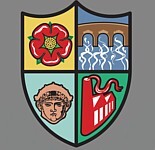2013
| 25th Feb, 2013 |
|---|
|
Bill Kitchen Firemen on Main Line Stream Trains. Bill Kitchen, who had talked to the history society last year about his enthusiasm for the steam launches on Lake Windermere, paid another visit to the society recently, to give us a fascinating insight into life on the footplate of a steam-driven train. Bill had left school at the age of 15 and had gone straight into work as an engine cleaner on British Rail. He had experienced the transition of the railways from steam to diesel-traction in the `50s and `60s and had worked his way up from a dog`s body cleaner to senior stoker on main-line coal-fired passenger and freight locomotives and had passed the exams to be a driver. He gave us an unsentimental - and refreshingly frank view of `the last days of steam`. From this perspective he contrasted the physical effort of firing a freight train with more than five tons of coal an hour shoveled into the firebox with the comparative ease of stoking a suburban passenger train that needed less than three tons an hour. He had a fund of lively anecdotes about his experiences and some hair-raising stories of incidents that could so easily have turned into tragedies, but mercifully didn`t A fascinating evening giving us an insight into a real fife story of 60 years ago, with an excellent sequence of photographs of some of Bill`s favourite engines, and a storyline that avoided technical terms without giving us the impression that he was dumb-ing it down for our benefit. The moral of the evening was the unbelievable absence of investment in the railways that existed at that time, a legacy that the current generation of taxpayers must now deal with. |
|
|
| 29th May, 2013 |
|
Harriet Roberts The History of Blackburn Orphanage On 29 May members gathered in the Ribchester Arms for the final session of the season with a talk by Harriet Roberts on the history of Blackburn Orphanage. The face might not have been familiar, but the name certainly was since before joining Child Action Northwest (the successor organisation to Blackburn Orphanage) Harriet had spent some 20 years or more on local radio. It came as no surprise therefore that, given her background in radio, Harriet proved to be an engaging and eloquent speaker who provided an entertaining potted history of the Orphanage from its founding by James Dixon in 1891. A man of great faith, James arrived in Blackburn as a joiner to seek work. Along with a co-founder, Thomas Walkden he set up Blackburn�s ragged school and was so moved by the deprivation in the area that after finding half a dozen boys sleeping rough in the doorway of a Blackburn warehouse he put his life savings of �50 into building the foundation for a boys orphanage and, shortly afterwards, a girls orphanage. Some 120 years or so later this work is still being carried on by the charity `Child Action Northwest`. To the surprise and delight of the audience Harriet`s talk was followed by a short film about the Orphanage, prepared by the BBC and narrated by members of the cast of Coronation Street. |
